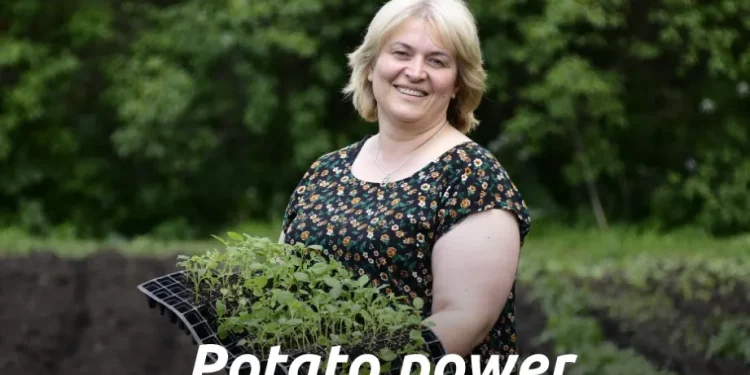According to an article published in the recently released International Potato Center’s (CIP) Annual Report 2021, potato is a mainstay of the diet of many people in the Republic of Georgia, eaten almost daily and used in traditional dishes such as kartopilis kinkali (Georgian potato dumplings).
Georgians consume an average of 55 kg of potatoes annually, but farmers have trouble meeting demand due to average yields of only 12 tons per hectare (compared to the 30-40 ton yields common in Western Europe). It’s hardly surprising that Georgia imported USD 3.5 million worth of potatoes in 2020.
To address this dilemma, the International Potato Center (CIP) has partnered with USAID, farmers, the private sector, the Georgian government and civil society organizations, to execute the Georgia Potato Program. This four-year initiative uses a gender-responsive, socially-inclusive approach to promote innovations and improved agronomic practices to expand Georgia’s potato sector – sustainably and profitably.
In less than two years, the program has helped more than 2,300 smallholders adopt innovative technologies and farming practices and reached more than 1,700 – about a third of them women – through online workshops. Almost half of the participants in 2021 were women, and most beneficiaries increased their yields by 225-263% by using quality seed potatoes and good practices.
The program also facilitated the evaluation of three high-yielding, disease-resistant potatoes recommended for release as varieties that will further boost production.
While the Georgia Farmers’ Association (GFA) created a Potato Council to advance issues related to the crop, the Program helped farmers create a Potato Producers’ Network (PPN), which is becoming a cooperative. Though small, the PPN is growing, and, given that half its members are women, that growth will be more inclusive.
The principal cause of Georgia’s low harvests is that most farmers plant low-quality seed potatoes. Farmers in countries with high potato yields regularly purchase disease-free seed potatoes from specialized producers, but Georgia has never had a commercial seed potato sector. The country imported 600 tons of seed potatoes in 2021, but most farmers still plant locally-sourced, low-quality seed.
The Georgia Potato Program is working with agricultural businesses and smallholder farmers to catalyze quality seed production while aiding Georgia’s Science Research Center for Agriculture to develop an effective seed certification system.
To raise farmer awareness about the importance of quality seed, the Program coordinated 200 seed potato demonstration plots on small farms – 53 of them managed by women. Young farmers are also capitalizing on the opportunity.
A source: https://www.potatonewstoday.com







